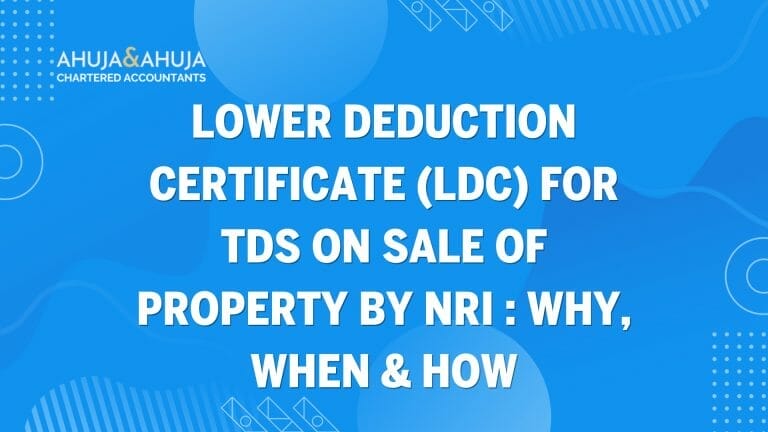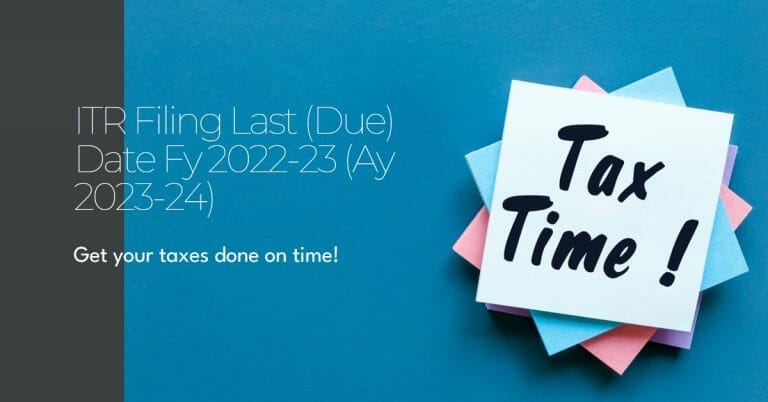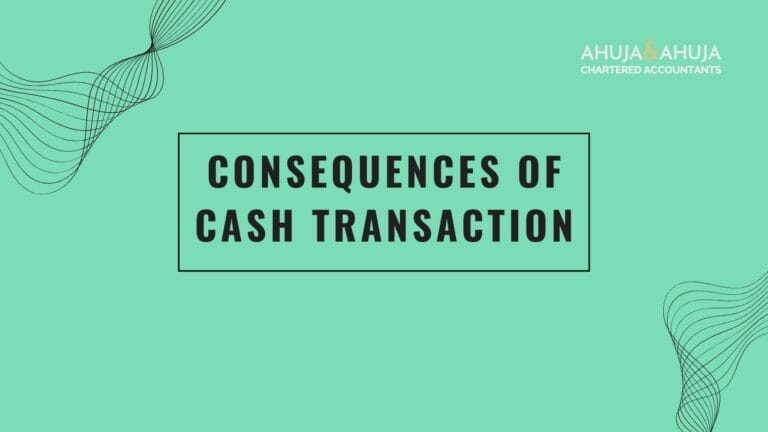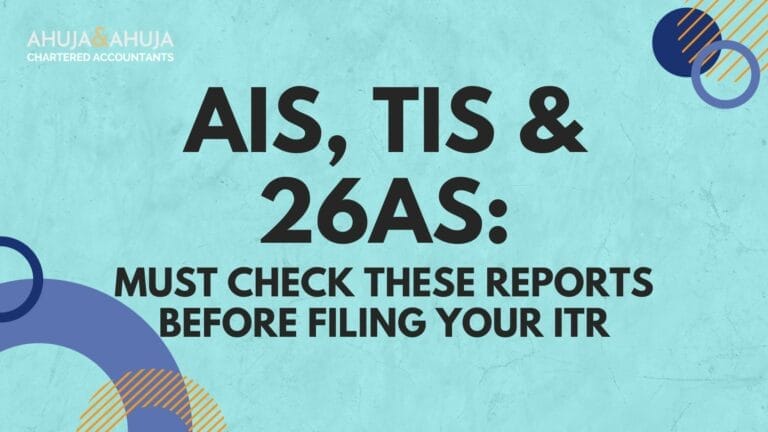Trade Advances are not Loans or Advances for deemed dividend u/s 2(22)(e)
The Honorable Delhi High court in its recent judgement held that ‘Trade Advances’ between a company and it’s shareholder (as covered under the definition of section 2(22)(e)) is not in the nature of “Loans & Advances” and is therefore not liable to be treated as dividend u/s 2(22)(e).
The crux of the judgement is that if a company is having commercial transactions with its shareholder and the shareholder is having a debit balance in the books of accounts of the company due to these commercial transactions, then the same cannot be treated as a ‘Loan or Advance” and added to the income of the company as deemed income u/s 2(22)(e) of Income Tax Act.
The text of the judgement is given below for your reference.
IN THE HIGH COURT OF DELHI AT NEW DELHI
ITA 589 OF 2011
Judgment Reserved On: 19.09.2011
Judgment Delivered On:30.9.2011
Commissioner of Income Tax Vs. Arvind Kumar Jain
JUDGMENT
A.K. SIKRI, J
1. The assessee is in the business of trading i.e. purchase and sale of books and journals. During the assessment proceedings, the Assessing Officer found that the assessee is a shareholder in a company called A & A Periodical Subscription Agency Pvt. Ltd. (hereinafter referred to as the A & A Periodicals). The paid up share capital of A & A Periodicals was 50,2000/- [50,200 shares of Rs. 10 each]. The assessee was holding 50% shares in this company and remaining 50% shares were held by Smt. Sunita Jain. The AO further found that in the books of accounts the assessee had shown taking unsecured loan of Rs. 47,23,5318/- from A & A Periodicals. The assessee being 50% shareholder in the said company, the aforesaid purported loan received by the assessee was treated as „deemed dividend? under Section 2 (22) (e) of the Act.
“(i) The company making the payment is one in which public are not substantially interested.
(ii) money should be paid by the company to a shareholder holding not less than ten per cent (10%) of the voting power of the said company. It would make no difference if the payment was out of the assets of the company or otherwise.
(iii) The money should be paid either by way of an advance or loan or it may be “any payment” whi h the company may make on behalf of, or for the individual benefit of, any share holder or also to any concern in which such shareholder is a member or a partner and in which it is substantially interested.
(iv) And, lastly, the limiting factor being that these payments must be to the extent of accumulated profits, possessed by such a company.”
x x x x x
Therefore, if the said background is kept in mind, it is clear that Sub-clause (e) of Section 2(22) of the Act, which is parimateria with Clause (e) of Section 2(6A) of the 1922 Act, plainly seeks to bring within the tax net accumulated profits which are distributed by closely held companies to its shareholders in the form of loans. The purpose being that persons who manage such closely held companies should not arrange their affairs in a manner that they assist the shareholders in avoiding the payment of taxes by having these companies pay or distribute, what would legitimately be dividend in the hands of the shareholders, money in the form of an advance or loan.
If this purpose is kept in mind then, in our view, the word “advance’ has to be read in conjunction with the word “loan’. Usually attributes of a loan are that it involves positive act of lending coupled with acceptance by the other side of the money as loan: it generally carries an interest and there is an obligation of re-payment. On the other hand, in its widest meaning the term “advance’ may or may not include lending. The word “advance’ if not found in the company of or in conjunction with a word “loan’ may or may not include the obligation of repayment. If it does then it would be a loan. Thus, arises the conundrum as to what meaning one would attribute to the term “advance’. The rule of construction to our minds which answers this conundrum is noscitur a sociis. The said rule has been explained both by the Privy Council in the case of Angus Robertson v. George Day (1879) 5 AC 63 by observing “it is a legitimate rule of construction to construe words in an Act of Parliament with reference to words found in immediate connection with them” and our Supreme Court in the case of Rohit Pulp & Paper Mills ltd v. CCE, AIR 1991 SC 754 and State of Bombay v. Hospital Mazdoor Sabha, AIR 1960 SC 610.
It is important to note that Rohit Pulp (supra) was the case dealing with taxation. In brief in the said case the assessee was seeking to take benefit of an exemption notification. The Department denied the benefit of the “notification’ on the ground that the paper manufactured by the assessee was “coated paper’ to which as per the proviso to the said notification the concession was not available. The Supreme Court in coming to the conclusion that the assessee’s case did not fall within the proviso and was thus entitled to the benefit of the notification applied the rule of construction of noscitur a sociis.
Importantly, the broad principles which emerge from the judgment of the Supreme Court with regard to the applicability of the said rule of construction are briefly as follows:
(i) does the term in issue have more than one meaning attributed to it i.e., based on the setting or the context one could apply the narrower or wider meaning;
(ii) are words or terms used found in a group totally “dissimilar’ or is there a “common thread’ running through them;
(iii) the purpose behind insertion of the term.
Let’s examine as to whether based on the aforesaid tests the said rule of construction “noscitur a sociis’ ought to be applied in the instant case.
(i) the term “advance’ has undoubtedly more than one meaning depending on the context in which it is used;
(ii) both the terms, that is, advance or loan are related to the “accumulated profits’ of the company;
(iii) and last but not the least the purpose behind insertion of the term advance was to bring within the tax net payments made in guise of loan to shareholders by companies in which they have a substantial interest so as to avoid payment of tax by the shareholders;
Keeping the aforesaid rule in mind we are of the opinion that the word “advance’ which appears in the company of the word “loan’ could only mean such advance which carries with it an obligation of repayment. Trade advance which are in the nature of money transacted to give effect to a commercial transactions would not, in our view, fall within the ambit of the provisions of Section 2(22)(e) of the Act. This interpretation would allow the rule of purposive construction with noscitur a sociis, as was done by the Supreme Court in the case of LIC of India v. Retd. LIC Officers Assn. [2008] 3 SCC 321. ”
6. Learned counsel for the appellant hammered the fact that the amount was shown by the assessee himself in his books of accounts as “unsecured loan” and, therefore, the order of the Assessing Officer was correct.
7. It is trite law that mere nomenclature of entry in the books of accounts is not determinative of the true nature of transaction. See Commissioner of Income Tax Vs. India Discount Co. Ltd. 75 ITR 191 (SC), Commissioner of Income Tax Vs. Provincial Farmers (P) Ltd. 108 ITR 219 (Cal) and KCP Ltd. Vs. CIT, 245 ITR 421. In the present case after going through the relevant evidence as well as current account maintained between the parties, it has been established that the payment made were the result of trading transaction between the parties and the amount was not given by way of loan or advance.
8. We thus, find that no question of law arises in this appeal which is accordingly dismissed.
SEPTEMBER 30, 2011
Disclaimer
The materials provided herein are solely for educational and informational purposes. No attorney/professional-client relationship is created when you access or use the site or the materials. The information presented on this site does not constitute legal or professional advice and should not be relied upon for such purposes or used as a substitute for professional or legal advice.





